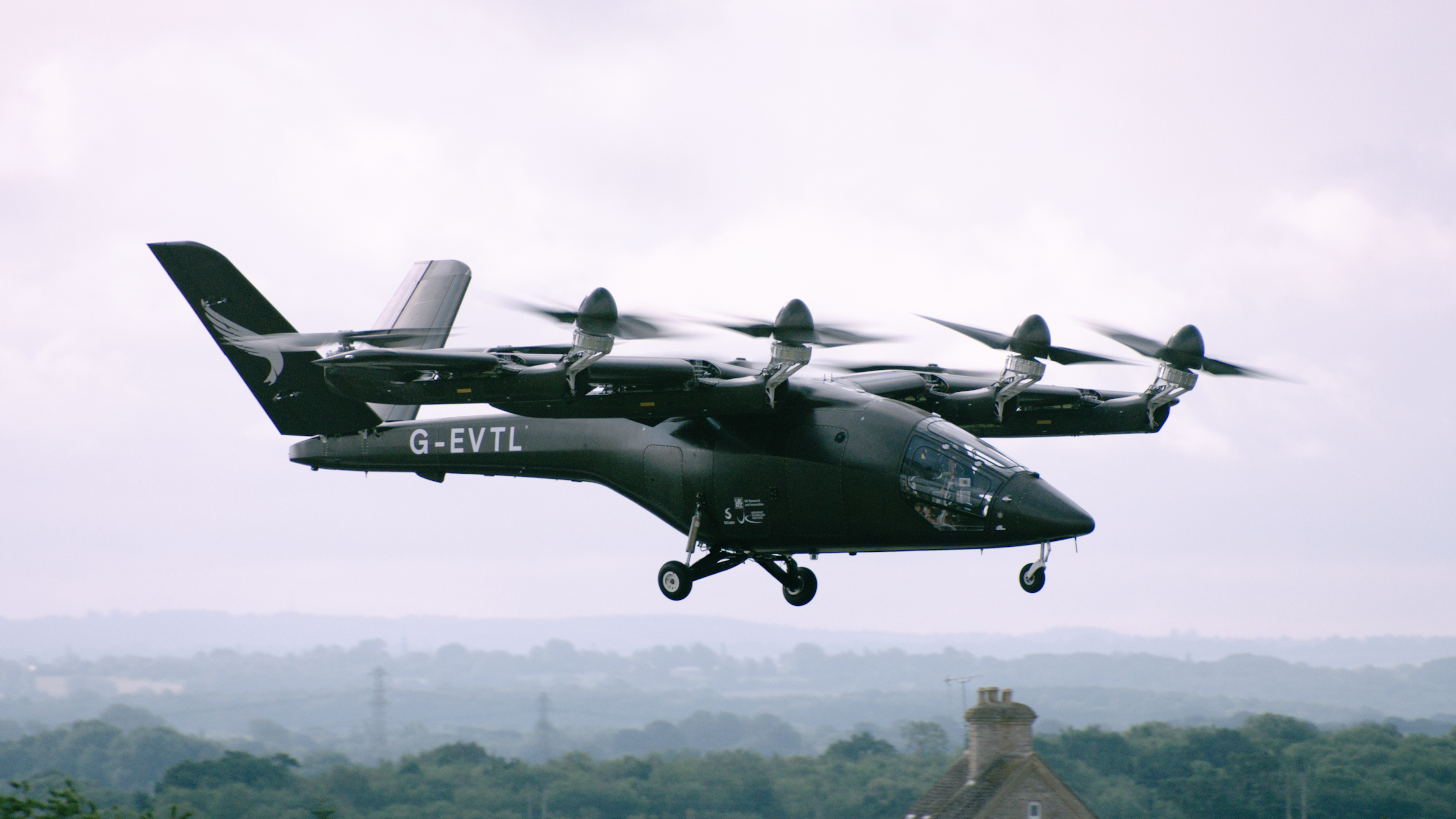Click Here to View This Page on Production Frontend
Click Here to Export Node Content
Click Here to View Printer-Friendly Version (Raw Backend)
Note: front-end display has links to styled print versions.
Content Node ID: 420246
Rolls-Royce Plans To Sell Electrical Propulsion Division
Rolls-Royce is open to offers from prospective buyers for its electrical division, which focuses on activities such as developing electric propulsion systems for eVTOLs, including Vertical Aerospace’s VX4. The UK-based aircraft engine maker revealed the move as part of a wider restructuring plan that it rolled out on November 28 in a briefing for financial analysts. The plan could include other divestitures across the group that are expected to raise up to £1.5 billion ($1.9 billion) over the next five years.
Announcing details of a long-anticipated corporate reboot, Rolls-Royce CEO Tufan Erginbilgiç said the company is “looking at options to exit [the electrical business] in the short-term or alternatively for the right value, reduce our position to a minority with an intention to exit fully in the midterm.”
What isn’t entirely clear from the divestiture announcement is whether Rolls-Royce only intends to stop working directly on battery electric propulsion systems like those being developed for Vertical, or whether the change might also impact its wider work on new hybrid-electric propulsion systems for airliners. For instance, the electrical division now being put on the auction block has been involved in the development of a turbogenerator that could run on sustainable aviation fuel. Erginbilgiç did say the group intends to maintain electrical engineering expertise in its other divisions.
It is unclear whether Rolls-Royce will still support Vertical Aerospace’s eVTOL program. "Vertical is working with Rolls-Royce to understand today's announcement in more detail," the company said in a written statement. "In parallel, we continuously assess our strategic options to ensure we can successfully deliver the VX4 in its certification timeline."
Eve Launches Saudi Partnership and Rolls Out eVTOL Plan for Korea
Eve Air Mobility and Saudi Arabian airline Flynas are exploring prospects for launching eVTOL air services in Riyadh and Jeddah in 2026. The memorandum of understanding announced on Wednesday does not specifically commit Flynas to purchase the four-passenger aircraft Eve is developing.
“We are pleased to explore the sustainable solutions with Eve Air Mobility as a pioneering company in this field, in line with Flynas’s strategy to adopt initiatives with sustainable impact on the environment, society, and economy in parallel with the national goals to neutralize greenhouse gas emissions by 2060,” said the Saudi carrier’s CEO and managing director, Bander Almohanna.
On November 28, Eve and South Korean low-cost carrier Jeju Air published a concept of operations for possible eVTOL air services to and from Jeju Island, off the country’s south coast. The white paper, published in Korean, is based in part on a customer survey the airline conducted this year. Jeju Air has indicated it intends to operate eVTOL aircraft.
Volatus Infrastructure and Lyte Partner To Bring SAF, Hydrogen to Vertiports
Volatus Infrastructure & Energy Solutions is teaming up with Lyte Aviation to incorporate multiple refueling options into its vertiport infrastructure for eVTOL air taxis. In addition to multimodal chargers for electric aircraft, Wisconsin-based Volatus aims to provide sustainable aviation fuel (SAF) and hydrogen at its vertiports to support hybrid-electric and hydrogen-powered aircraft such as Lyte’s SkyBus. The 40-passenger SkyBus will initially have a hybrid-electric powertrain, but the company aims to develop an iteration powered entirely by hydrogen fuel cells.
“Advanced air mobility will come in many different shapes, sizes, and means of propulsion—including bold, game-changing designs like the LA-44 SkyBus,” said Volatus CEO Dan Sloat. “As infrastructure and energy providers, we believe in the importance of accommodating as many designs as possible so that eVTOL operators have more safety divert options available for landing.”
HevenDrones Unveils H2D200 Family of Hydrogen-powered UAVs
HevenDrones this week introduced a pair of hydrogen-powered uncrewed air vehicles at the Monaco Hydrogen Forum. The H2D200 series uses fuel cells developed by the Israel-based start-up’s partners and is intended for a variety of applications such as inspection flights over solar panels and farms.
The H2D200 drone has a payload of up to 4.5 kilograms (10 pounds) and a range of 510 kilometers (319) miles. The larger H2D250 model will be able to carry up to 10 kilograms on flights of 750 kilometers. The new UAVs supplement HevenDrones’ current battery-electric H100 model.
The new drones will run on gaseous hydrogen stored in cylinders at 250 bar. “The H2D200 series represents not only a leap forward in drone technology but also a testament to our commitment to building a smarter ecosystem in the skies using the full power and potential of artificial intelligence,” said HevenDrones CEO Bentzion Levinson. “With these hydrogen-powered drones, we are redefining the possibilities of what drones can achieve, while leveraging clean and readily available fuel sources.”
Brazilian Airline Azul May Electrify Cessna Caravan Aircraft with Surf Air
Brazilian airline Azul has agreed to work with Surf Air Mobility to convert its fleet of Cessna Caravans to electric propulsion. Surf Air Mobility is partnered with electric motor developer MagniX and systems integrator AeroTec in seeking a supplemental type certificate to convert the turboprop single. With Azul’s support, Surf Air aims to seek approval from Brazil's air safety regulator ANAC.
Azul operates 27 Cessna Caravans through its Azul Conecta regional division. According to Surf Air, converting these would eliminate carbon emissions and reduce direct operating costs by up to 50 percent, potentially allowing operators to launch routes that are not economically viable with current aircraft.
Surf Air aims to receive FAA approval in 2026. It is one of several companies working to convert the Caravan to all-electric or hybrid-electric propulsion. Others include Ampaire, aircraft OEM Textron Aviation, and hydrogen fuel cell developer ZeroAvia.
